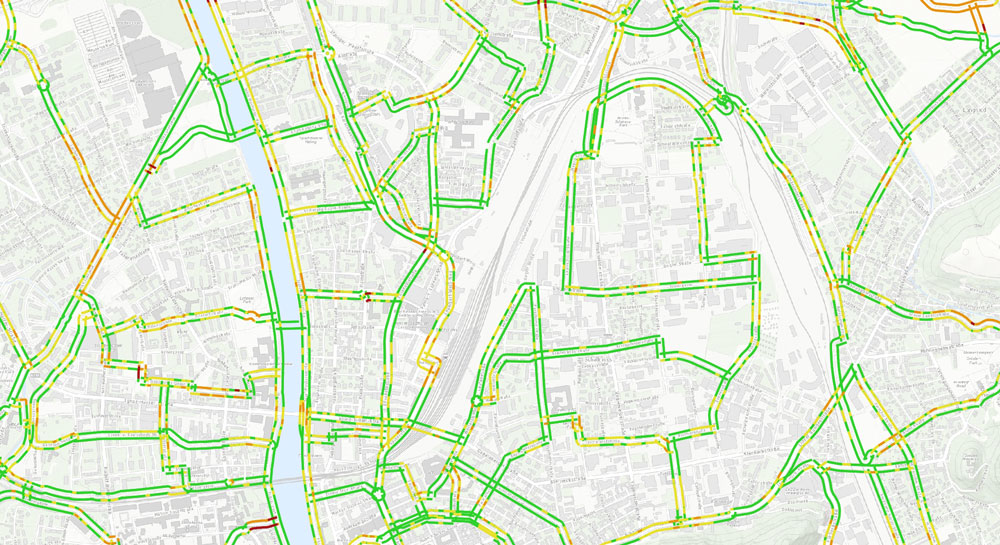
Incentives for sustainable mobility in the city
Dynamic Mobility Nudge: Using digital, data-based insights to promote sustainable mobility in cities. In order to make cities liveable and to implement climate-friendly measures, residents should be motivated to increasingly cycle, walk or use public transport. Individual motorised transport is to be reduced and sustainable forms of mobility increased.
The research project led by Salzburg Research is developing digital, data-based options to promote changes in daily mobility behaviour. The researchers are investigating the extent to which incentives (nudges) become more effective through contextual information. For this purpose, location information, general conditions such as weather, traffic situation, noise or pollution levels and behavioural-economic components are linked together. All digital data is processed in such a way that extensive automation of all processes is possible.
Based on real-time data, user-generated and public data, this framework is intended to expand the state of research in the field of behavioural economics and psychology in the mobility sector, while at the same time supporting the mobility revolution and inspiring decision-makers.
In addition to managing the research project, Salzburg Research is responsible for the survey of user needs and the design of the digital nudges, which are a core part of the research work. The pilot cities for which these incentives will be implemented as examples are Salzburg and Uppsala (Sweden). In addition to German and Swedish partner organisations, the Z_GIS of the University of Salzburg is also part of the consortium. DyMoN is funded in the JPI Urban Europe programme by the Austrian Ministry for Climate Protection, among others.
More information: DyMoN – Dynamic Mobility Nudge: Shaping sustainable urban mobility behaviour with real-time, user-generated and public open data






